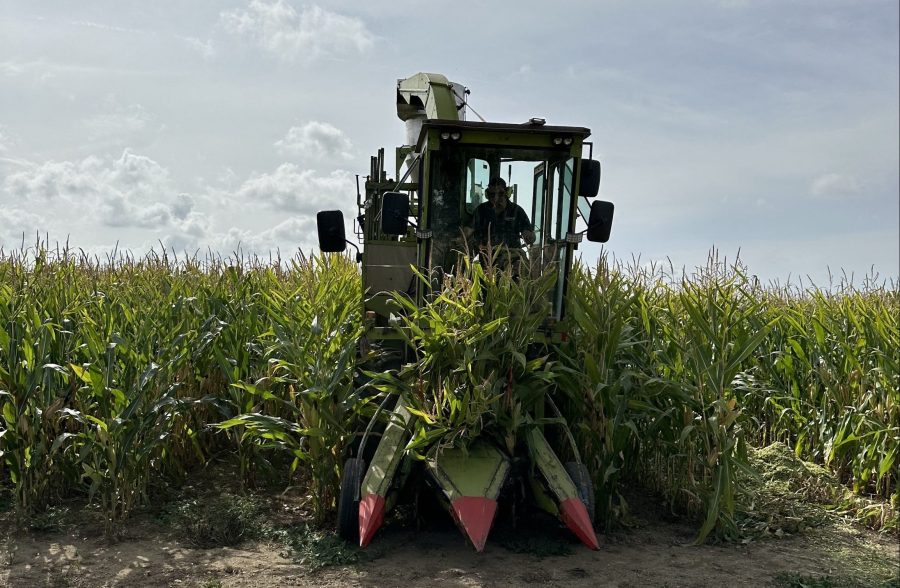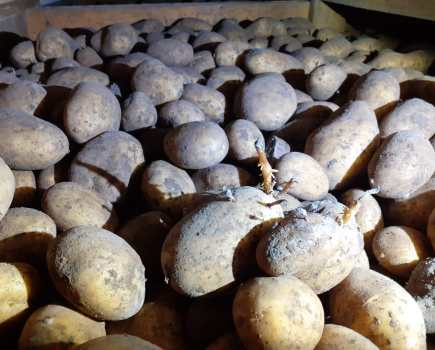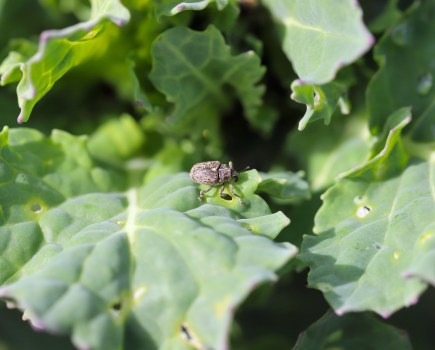Nine new varieties have been added to the British Society of Plant Breeders’ 2025 Forage Maize Descriptive Lists.KWS Granturismo, KWS Bravo, KWS Kampinos, KWS Temprano, Papageno and Rejko from KWS, alongside Promise, AYA and Duke from Limagrain, Justice from Grainseed, and Starlord and MAS 075B from Bright Seeds are new entrants on the 2025 Favourable First Choice List.
LID0720C from Grainseed, along with RGT Muxxeal and RGT Buxxton from RAGT and KWS Leto from KWS, have been added to the Favourable Second Choice List. KWS Temprano, KWS Leto, KWS Bravo, Rejko, Duke, Aya, MAS 075B and Starlord have also made it onto the First Choice List for Less Favourable sites.
The Very Favourable Descriptive List now has the addition of two more varieties from Grainseed Ltd – Micheleen and Jakleen.
Trials programme
Ellie Roberts, NIAB’s forage crop specialist and maize DL trials programme coordinator on behalf of BSPB, explains that the Descriptive List trials programme has 13 trial sites across England.
“Those with the longest potential growing season, with warmer spring soils for early establishment, provide data for the Favourable List. Trials data used for the Less Favourable List show the performance of varieties in shorter, cooler growing seasons.
“The Very Favourable DL is produced from a separate trial programme using trials sites with higher heat units, where breeders can choose to test later maturing varieties with the highest yield potential for anaerobic digester feedstock,” says Ellie.
For as long as she’s been involved in the BSPB trials programme, Ellie highlights that forage maize crops, and the DL trials, have faced weather-related growing challenges every year so far.
“From cold, late springs delaying sowing and testing early vigour, to prolonged drought conditions and high temperatures challenging growth and maturation. We’ve also seen strong winds and rain causing high levels of lodging in some years along with very wet conditions delaying harvest by many months.”
Ellie emphasises the most important aspect of the maize variety trials programme is the fairness and consistency of circumstances and management. Such robust data validation, across challenging growing seasons, ensures growers can be confident in the reliability and performance of the varieties chosen for the lists, she adds.
“Looking back in the data archives, 2014 had means of 16.2t/ha yield at 11.2 MJ ME/kg and 32.4% starch, compared with 2024 means of 18.3t/ha at 11.6 MJ ME/kg and 35.1% starch. This shows a dry matter yield increase of 2.1t/ha, ME increase of 0.4 MJ ME/kg and an increase in starch content of 2.7% during the past decade. The DL trial programme continues to encourage maize breeders to push their varieties’ yield and feeding quality ever higher whilst increasing nutrient use efficiency,” she says.
Favourable sites DL
Of the new varieties added to the Favourable sites DL, Ellie highlights KWS Granturismo as the highest yielding at 20.2t DM/ha, with a metabolisable energy (ME) yield of 227 kMJ/ha and starch yield of 5.61t/ha. Limagrain’s Promise is the next highest yielder at 19.6t DM/ha, with an ME yield of 226 kMJ/ha and starch yield of 6.48t/ha. The variety with both the highest ME yield and highest starch yield on the favourable list is KWS Kampinos at 230 kMJ/ha and 6.77t/ha respectively, at a yield of 19.5t DM/ha.
Less Favourable sites
Of the Less Favourable sites DL varieties, KWS Bravo has the highest yield of 19.6t DM/ha at 34.5% dry matter, with the highest metabolisable energy yield on the List at 228 kMJ/ha and highest starch yield on the First Choice List at 6.94t/ha at 35.5%. “All the new varieties score well for both early vigour and standing power,” advises Ellie.
Very Favourable sites
Of the two varieties added to the Very Favourable DL Micheleen is the highest yielding at 20.4t DM/ha with the highest ME yield of 231 kMJ/ha and highest starch yield at 6.24t/ha. Jakleen yields 20.0 t DM/ha with ME yield at 228 kMJ/ha and starch yield of 5.8t/ha. Both varieties score well on early vigour and standing power.
The BSPB 2025 Forage Maize Descriptive Lists are available to download from the BSPB and NIAB websites.




